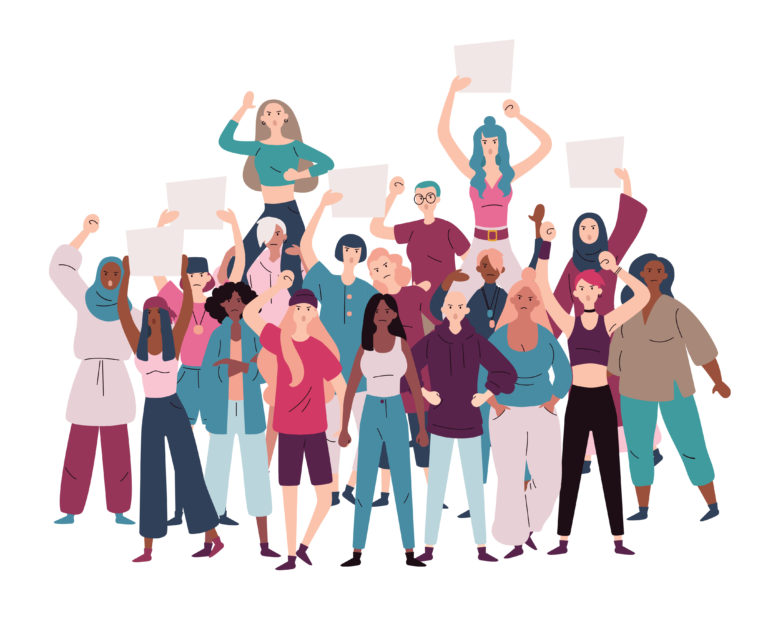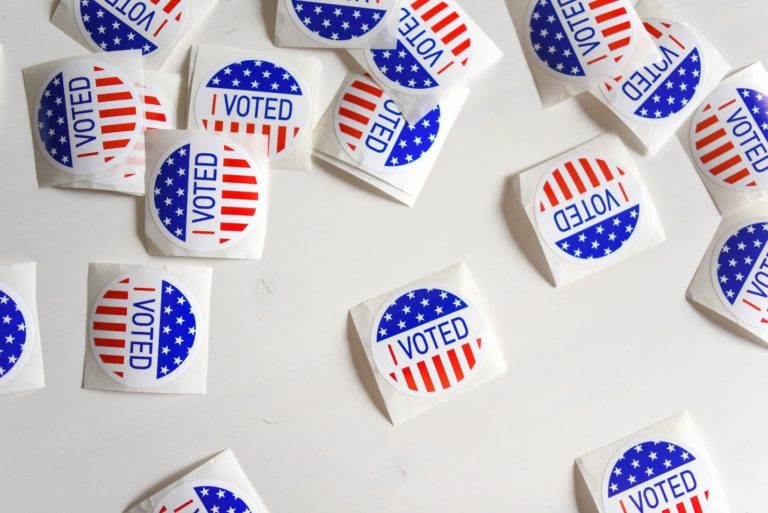In the years following the 2016 election, more and more women have run for office…
The Challenges Facing Women Candidates in 2020

As one of my heroes, former Texas Governor Ann Richards of once pointed out, Ginger Rogers did everything Fred Astaire did, just backwards and in high heels. In her recent debate with Mike Pence, Kamala Harris reminded us that in 2020, women candidates – especially Black women – also have to do it with a smile, even when being repeatedly interrupted. (It’s worth noting that while Kamala was prepared to stand in her high heels for the debate per Pence’s request, they were seated.) Her decision to smile while firmly and respectfully pushing back on Pence’s interruptions exemplified the complicated gender and racial biases that Senator Harris, women candidates and particularly women of color must navigate daily just to be seen and heard, let alone considered for executive office.
As we know from years of research by the Barbara Lee Family Foundation (BLFF) and others women candidates, especially women of color, must navigate a far more complex set of issues, biases and expectations to be effective communicators and be seen as credible and electable as compared to white male candidates. As one BLFF report points out, “Likeability and qualifications are the two components of electability that women must consistently balance. Past research conducted by BLFF has repeatedly shown that women face a litmus test that men do not have to pass. Voters will support a male candidate they do not like but who they think is qualified. Men don’t need to be liked to be elected. Voters are less likely to vote for a woman candidate they do not like.” A woman candidate’s likeability also impacts perceptions of her credibility and trustworthiness and can be impacted by everything from her tone of voice, to hair style and clothing, personal demeanor, to her ability to talk about her qualifications without “bragging.”
Women candidates are constantly threading multiple needles as they try to be their authentic selves knowing they are unequally judged by their ability to balance style and substance and the ever-changing perceptions of womanhood all while demonstrating toughness, strength and compassion without being seen as too negative or shrill. Black women also contend with the negative trope of the “angry Black woman” which is often used to discount and silence them all together.
Senator Harris’ historic candidacy and the record number of women, especially women of color, running for office in 2020 and the racist, misogynist and sexist tropes they face in targeted attacks have inspired historic woman-led efforts like Vote for Her, #WinWithBlackWomen and a disinformation “war room” among others, to publicly name, push back on and call out these attacks in real time. Across the country women are organizing formally and informally to use our voices, our resources and our networks to combat misinformation, lift up her story and her record and keep the conversation focused on Senator Harris’ qualifications. As we saw during the Veepstakes, criticism of women candidates too often defaulted to conversations about personality traits over substance with questions about ambition, femininity, Blackness, too bold or not bold enough. None of which contributed to a meaningful assessment of their qualifications.
The barrage of unrelenting disgusting misogynist smears are core to the strategy to undermine Senator Harris’ popularity and effectiveness. The smears have questioned Senator Harris’ citizenship (she was born in Oakland, CA): directly attacked her qualifications: her personal motives: and her competence and leadership.
While these attacks aren’t new, they’re being weaponized in new ways through the use of social media with a combination of personal attacks based on tropes and false information in targeted, coordinated attacks on women up and down the ballot aimed specifically at undermining trustworthiness, qualifications, intelligence and credibility.
For Black women, this historic moment is also about raising our voices and stepping into our power to support Kamala, Black women up and down the ballot and finally being seen, recognized and respected as leaders and as a powerful voting bloc.
Together we are also making it clear that enough is enough, we will not shy away from these important conversations. We aren’t seeking special treatment. We are signing on to the work of our ancestors, brave women whose names are known and unknown who have fought for all women to be treated equally. In this historic year we have the opportunity to change the conversation not just about Kamala Harris and all of the women who are running for in 2020 and beyond and to create a more equal environment for women and candidates of all backgrounds to run for office and win.






